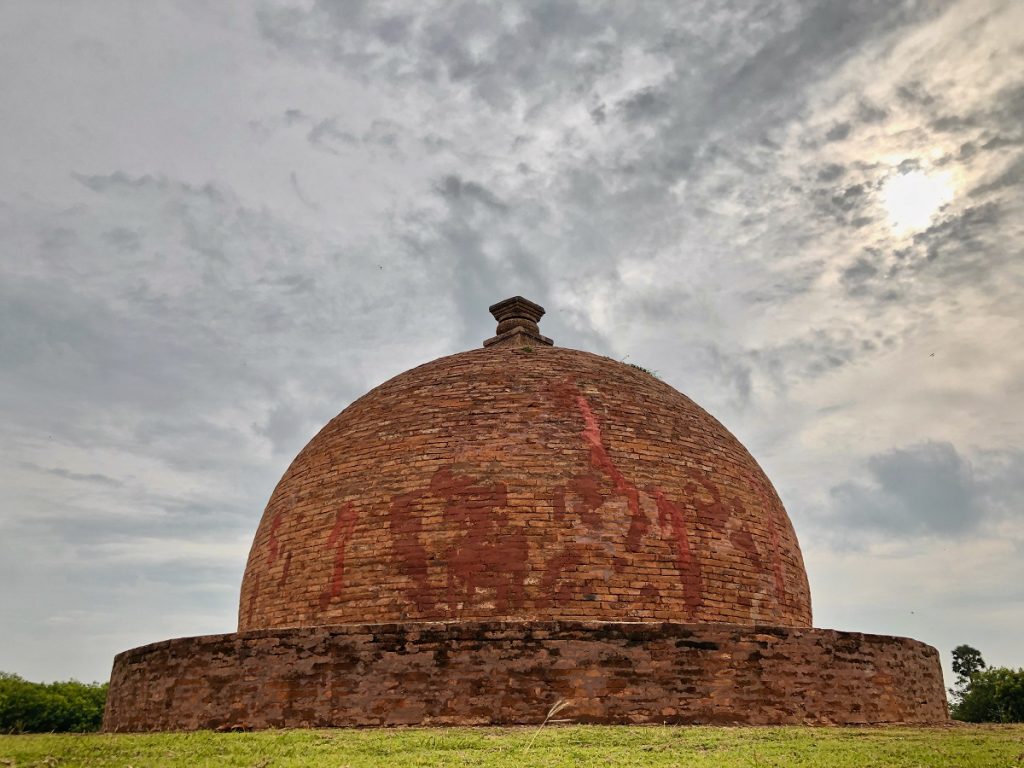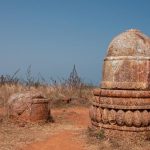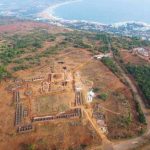
Andhra’s capital plans pose threat to Buddhist heritage sites
The feverish construction activity around the coastal Andhra city of Visakhapatnam, the proposed executive capital, is posing a threat to the heritage sites in the region.

The feverish construction activity around the coastal Andhra city of Visakhapatnam, the proposed executive capital, is posing a threat to the heritage sites in the region.
The Jagan Mohan Reddy government’s plan to build a housing complex and a guest house for VIPs on a 30-acre land atop Greyhounds Hill at Kapuluppada has raised the hackles of environmentalists and heritage lovers as it would pose a threat to the ancient Thotlakonda Buddhist site.
The Buddhist complex, spread over nearly 48 hectares on a hill overlooking the Bay of Bengal, about 15 km from Visakhapatnam, is believed to have flourished between the second century BCE and the second century CE.
Thotlakonda emerged alongside other nearby Buddhist complexes, such as Bavikonda and Pavurallakonda, and fell within the influence of the ancient region of Kalinga, which was instrumental in disseminating Buddhism to Sri Lanka and Southeast Asia. Buddhist monks from across Asia are believed to have travelled to study and practice at Thotlakonda.
Since the discovery of the site in 1976, it has been declared a protected monument. Notable excavations at the site include the reconstructed Maha-stupa—which partially collapsed last year during heavy rains—16 votive stupas, a stone pillared congregation hall, three circular prayer halls, 10 viharas, a kitchen complex, and a refectory. Silver Roman coins and other evidence of international commerce have also been found at the site.
Related news: BJP’s doublespeak on Amaravati: Confusing message or deliberate ploy?
“The entire area is rich in archaeological evidence relating to the Buddhist era of the 3rd century BC. It was notified in 1978 under the AP Ancient and Historical Monuments, Archaeological Sites and Remains Act and any proposal to divert any part of it for the ‘executive capital’ or for any housing complex would be a violation of the Act,” said EAS Sarma, former union energy secretary and noted environmentalist.
The retired IAS officer pointed out that the High Court had given specific directions in 2016 not to take up any construction in the particular stretch. “As per the central law, another 300 metre of a buffer zone comprising should also be left untouched,” he said.
Fabrication of records
Heritage activists say that the successive governments had, over the last three decades, facilitated alienation of lands in the area, either for their own utilities or for private usage.
“The district revenue authorities have been fabricating land records to hide the Buddhist sites. This is being done to legitimise the state-sponsored grabbing of lands that fall under heritage sites,” alleged Rani Sarma, former president of the Visakhapatnam branch of the Indian National Trust for Art and Culture and Heritage (INTACH), an NGO.
The previous TDP government, headed by N Chandrababu Naidu, had allotted 15 acres in the area for the Film Nagar Cultural Club and 300 acres for Greyhounds, the state’s elite police unit.

Keen on shifting the capital from Amaravati to Visakhapatnam, the present government had recently issued an order directing the district administration to acquire 30 acres of land adjacent to heritage sites in Kapuluppada village on the city suburbs for the construction of a guesthouse and residential quarters for government personnel.
Brushing aside the protests from heritage activists, a foundation stone was also laid for the guesthouse.
Minister’s assurance
State Tourism Minister M Srinivasa Rao assured that the proposed government guesthouse or housing complex would not pose any threat to Thotlakonda or the nearby Bavikonda archaeological sites.
“Our government is committed to the protection of heritage sites. The proposed guesthouse is more than one kilometer away from the protected site,” the minister said.
The government, he said, was also planning Vipassana meditation and Buddhist activity at the protected site to draw tourists from all over the world. “We had restored a Maha-stupa at Thotlakonda which shows our commitment to its protection,” he said.
Related news: “Capital punishment”: One year of Jagan’s rule in Andhra Pradesh
However, activists and Buddhist organisations are not convinced. They’ve been vociferously opposed to any construction activity in the area, pointing to the high potential of rich archaeological evidence from the early Buddhist era lying undiscovered in the partially explored area.
“The Government Order on land acquisition for the guest house and other purposes is in clear violation of the AP Ancient Historical Monuments, Archaeological Sites and Remains Act, 1960,” argued VS Krishna and K Sudha of the Human Rights Forum (HRF).
Quoting studies, they said that there were over 120 micro and unexplored sites around Thotlakonda. “Because of constructions proposed by the government, the yet-to-be-discovered cultural heritage may be in danger of being wiped out,” they said.
Kothapalli Venkataramana of the Buddhist Society said there was a need for maintaining a buffer zone around the Buddhist complexes on Thotlakonda, Bavikonda, and Pavuralakonda with a blanket ban on construction of all sorts in the buffer zone.

Citing the 2016 high court judgment, he contended that the construction of the guesthouse would amount to contempt of court.
“The original area notified under the historical monuments act is spread over 33,000 acres on a cluster of hills. But, over years, revenue records have been fudged to downsize the extent to a few hundred acres, resulting in the alienation of vast lands,” Venkataramana said.
He lamented that no proper survey had been conducted to identify the Buddhist structures in the region.
Archaeological significance
The archaeological significance of the area was highlighted by American anthropologist Lars Fogelin, who has previously conducted surveys around the Thotlakonda site. Fogelin noted that judicial intervention would be sought if the government ignored appeals not to proceed with the development project.
In his book Archaeology of Early Buddhism (2006), Fogelin states his team had surveyed 7.3 sq kms and identified 328 archaeological features, including walls, terraces, reservoirs, and a stupa during fieldwork carried out between 2000 and 2002.


